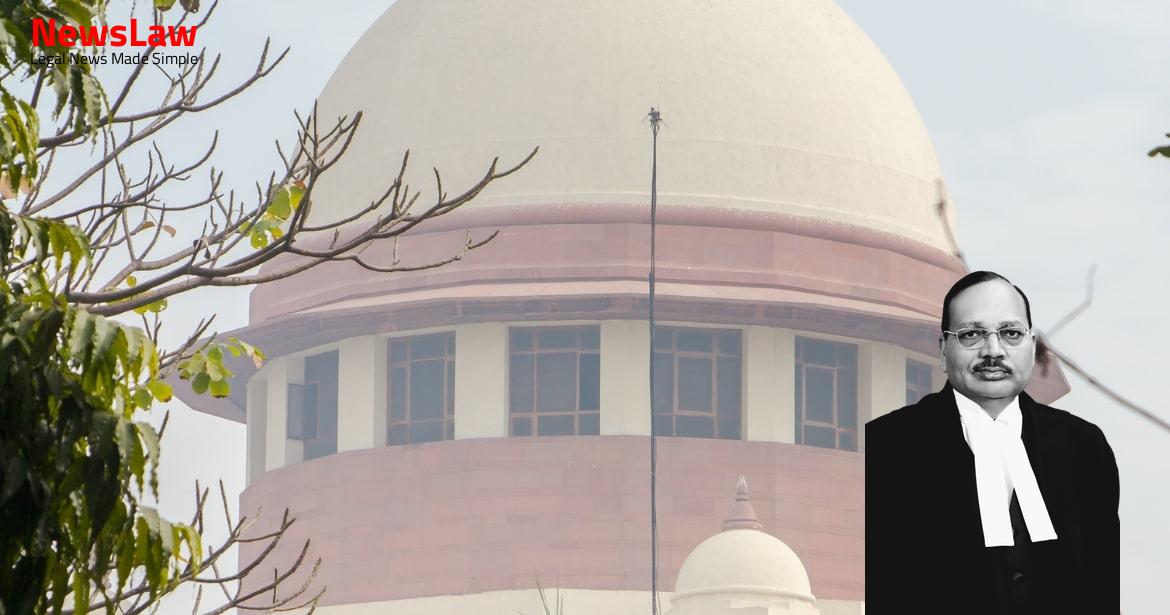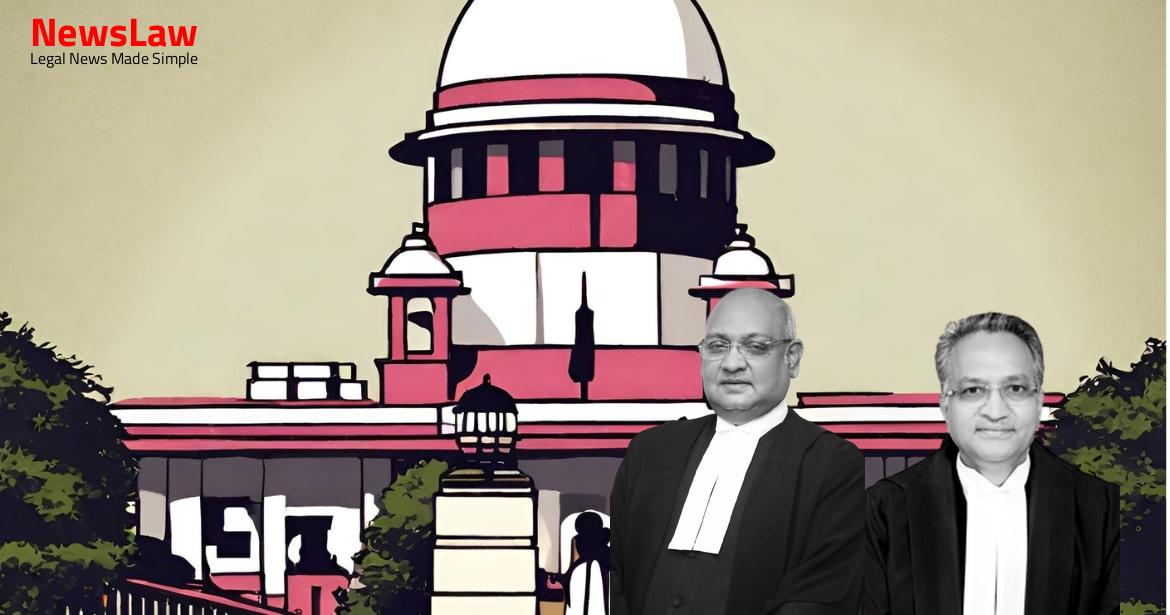The Supreme Court of India delivered a significant judgment on the status of real estate allottees as financial creditors under the Insolvency and Bankruptcy Code. The case addressed the concerns raised by various stakeholders regarding the inclusion of allottees in the Committee of Creditors. This ruling has far-reaching implications on the relationship between real estate developers and homebuyers, setting a precedent for future legal proceedings in the real estate sector.
Facts
- Financial creditors are entitled to be represented in the Committee of Creditors by authorized representatives.
- Amendments to the Insolvency and Bankruptcy Code deem allottees of real estate projects to be ‘financial creditors’ to trigger the Code against the real estate developer.
- Writ petitions challenging the constitutional validity of the amendments made to the Code following the Insolvency Committee Report.
- NCLAT in Nikhil Mehta and Sons (HUF) v. AMR Infrastructure Ltd. held that amounts raised by developers under assured return schemes had the commercial effect of borrowing.
- IDBI Bank initiated proceedings against Jaypee Infratech Ltd. under Section 7 of the Code for defaulting on a loan, leading to allottees being classified as financial creditors.
Also Read: Landmark Judgment: Abhyudaya Co-operative Bank Ltd. vs. Guravs
Arguments
- The Petitioners argued that allottees should not trigger the Code and should only be members of the Committee of Creditors if the Code is already triggered.
- They suggested alternative ways for the Code to be read-down to conform with Articles 14 and 19(1)(g) and 300-A.
- The Petitioners raised concerns about destabilization of management due to the inclusion of allottees as financial creditors.
- They argued that allottees should not be allowed to trigger the Code at all, but can participate in the Committee of Creditors for decisions beneficial to them.
- The Petitioners expressed concerns about allottees having the power to remove management or lead the corporate debtor to liquidation once the Code is triggered.
- Real estate developers argued that RERA shut out consumer fora for allottees, but NCDCR ruled that Consumer Protection Act, 1986 remains an additional remedy alongside RERA.
- Legislature’s right to experiment in economic matters was highlighted in the Swiss Ribbons case.
- Real estate allottees being classified as financial creditors was argued to go against the objective of maximizing asset value under the Code.
- Concern was raised that a single allottee desiring refund could trigger the Code and disrupt construction for other genuine buyers.
- Multiple opportunities for settlements between real estate developers and allottees were highlighted before drastic actions under the Code are taken.
- The argument regarding deeming fictions and the functions of explanations in legal provisions was addressed.
- Challenges faced by allottees in obtaining relief through RERA due to conflicting orders from Appellate Tribunals were mentioned.
- Allottees were advised to join together or file individual petitions after the Code is triggered, to have a voice in the Committee of Creditors for project completion and compensation.
Also Read: Land-Grabbing Conspiracy Case: Supreme Court’s Landmark Judgment
Analysis
- The Authority has the power to issue directions to promoters, allottees, and real estate agents for compliance with the provisions of the Act.
- The Authority’s functions include registering and regulating real estate projects and agents, ensuring compliance with obligations, and maintaining a database accessible to the public.
- The Authority can issue interim orders to restrain actions in contravention of the Act during inquiries.
- Any aggrieved person can file a complaint with the Authority for violations of the Act.
- The Authority can revoke registration if the promoter defaults or violates terms, and may extend registration under certain circumstances.
- Provisions for Committee of Creditors in case of financial debts and appointment of authorized representatives.
- The Act aims to regulate the real estate sector, ensuring transparency and accountability.
- Various penalties for non-compliance with the Act, including fines and compensation to allottees.
- Establishment of Real Estate Regulatory Authority and Appellate Tribunal for adjudication of disputes.
- Provisions for registration of real estate projects, obligations of promoters, and rights of allottees.
- Interplay between the Real Estate (Regulation and Development) Act and the Insolvency and Bankruptcy Code.
Also Read: Limitation Period Clarification: B.K. Educational Services Pvt. Ltd. vs. Parag Gupta & Associates
Decision
- Copies of the judgment to be sent to all Chief Secretaries of States and Union Territories.
- Stay orders granted by the Court to continue until the NCLT reviews each application by the allottees/home buyers.
- Compliance report by States and Union Territories to be submitted in the second week of January 2020.
- All writ petitions and civil appeal disposed of based on this judgment.
- Copy of the judgment to be sent to the Ministry of Law and Justice, Government of India immediately.
- Affidavit to be filed by the Union of India within three months on the steps taken for compliance.
- Matters to be posted in the second week of January 2020 for review.
- Compliance to be ensured by affidavits filed by Chief Secretaries of States and Union Territories within three months.
- No order as to costs.
Case Title: PIONEER URBAN LAND AND INFRASTRUCTURE LIMITED Vs. UNION OF INDIA
Case Number: W.P.(C) No.-000043 / 2019



